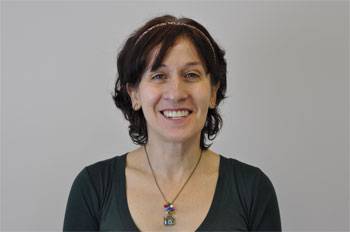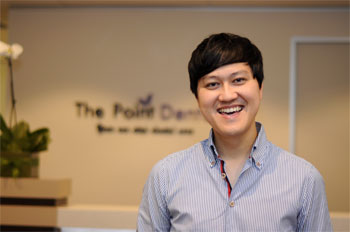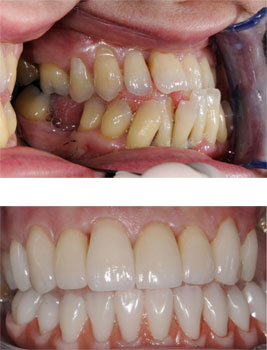Mirella James Overcoming Dental Phobia Interview

Mirella James Overcoming Dental Phobia Interview
Dr Wilfred Koon, principle dentist at The Point Dental, located in Point Cook, Melbourne has developed his practice to help Australians who suffer from dental phobia. According to Dr Koon, in Australia alone, "one in six adults suffer from massive fear of going to a dentist and as a result, they are developing serious dental and health problems."
"Oral health is linked to overall health including heart health," Dr Koon said.
"The bacteria that causes gum and teeth infection can enter the bloodstream forming fatty plaques in the arteries. These plaque deposits can lead to serious problems, such as blood clots, which can block blood flow, leading to heart disease or stroke"
"Many people who avoid going to the dentist finally see a dentist when they experience serious issues.
"Unfortunately, delaying dental treatment can allow a small problem that is easy to treat to develop into a more complex issue.
"I want to make a difference and help people to understand that it is important to see the dentist on a regular basis. This is why I started The Point Dental in Melbourne, to assist and treat people with a fear of dentists. Because fear of the dentist is so common, many people manifest their fears in different ways, which makes it difficult to recognise.
"Dental phobia can be very challenging for the treating dentist. Research has indicated that managing dental fear patients is a major source of stress for many dentists. Many anxious patients require a lot more patience, understanding and care.
"If fearful patients are not managed correctly, it can reinforce their fear, and they end up becoming more fearful. This can make them delay, or worse, avoid dental treatment completely. It's a vicious cycle and everyone loses out at the end, especially the patients.
"In Australia, there are currently 13 recognised dental specialties. However surprisingly, dental phobia, which affects the majority of the population to some degree, does not have a recognised dental specialty, which makes it difficult for people with severe dental fear to seek care.
 "This is where we can help. My team and I are experts in the field of dental fear and we work hard to make patients feel as at ease as they can. We have developed a number of techniques to help people overcome their fear.
"This is where we can help. My team and I are experts in the field of dental fear and we work hard to make patients feel as at ease as they can. We have developed a number of techniques to help people overcome their fear.
"I want to reach out to those people and tell them - yes we are here for them. We understand dental fear is uncontrollable, and we don't expect you to deal with it yourself. It's going to be a journey but there is a way. We can bring your teeth back to health, not just for the short term but also for the long term.
"I lead a team of thirteen and our whole clinic is designed to be as relaxing as possible. We are never in a rush and prefer to spend time with our patients to ensure they are happy.
"We offer many in-house services from basic to advanced dentistry including All-on-4. We are actually the only clinic in Western Suburbs of Melbourne to provide in-house general anaesthesia for our patients who prefer to feel nothing.
"By helping people to overcome their fear of the dentist, we are not only creating great smiles with our proven results, we are also helping people to improve their overall health and wellbeing. This also leads to increased confidence and self-esteem and we love seeing the results a few years on. Often our work can change a person's whole outlook.
"I'd like to think we are not in the job of just drilling and filling teeth, but in a job of helping people improve their quality of life, by overcoming their dental fear, and making them more confident of themselves!"
www.thepointdental.com.au
"Oral health is linked to overall health including heart health," Dr Koon said.
"The bacteria that causes gum and teeth infection can enter the bloodstream forming fatty plaques in the arteries. These plaque deposits can lead to serious problems, such as blood clots, which can block blood flow, leading to heart disease or stroke"
"Many people who avoid going to the dentist finally see a dentist when they experience serious issues.
"Unfortunately, delaying dental treatment can allow a small problem that is easy to treat to develop into a more complex issue.
"I want to make a difference and help people to understand that it is important to see the dentist on a regular basis. This is why I started The Point Dental in Melbourne, to assist and treat people with a fear of dentists. Because fear of the dentist is so common, many people manifest their fears in different ways, which makes it difficult to recognise.
"Dental phobia can be very challenging for the treating dentist. Research has indicated that managing dental fear patients is a major source of stress for many dentists. Many anxious patients require a lot more patience, understanding and care.
"If fearful patients are not managed correctly, it can reinforce their fear, and they end up becoming more fearful. This can make them delay, or worse, avoid dental treatment completely. It's a vicious cycle and everyone loses out at the end, especially the patients.
"In Australia, there are currently 13 recognised dental specialties. However surprisingly, dental phobia, which affects the majority of the population to some degree, does not have a recognised dental specialty, which makes it difficult for people with severe dental fear to seek care.
 "This is where we can help. My team and I are experts in the field of dental fear and we work hard to make patients feel as at ease as they can. We have developed a number of techniques to help people overcome their fear.
"This is where we can help. My team and I are experts in the field of dental fear and we work hard to make patients feel as at ease as they can. We have developed a number of techniques to help people overcome their fear. "I want to reach out to those people and tell them - yes we are here for them. We understand dental fear is uncontrollable, and we don't expect you to deal with it yourself. It's going to be a journey but there is a way. We can bring your teeth back to health, not just for the short term but also for the long term.
"I lead a team of thirteen and our whole clinic is designed to be as relaxing as possible. We are never in a rush and prefer to spend time with our patients to ensure they are happy.
"We offer many in-house services from basic to advanced dentistry including All-on-4. We are actually the only clinic in Western Suburbs of Melbourne to provide in-house general anaesthesia for our patients who prefer to feel nothing.
"By helping people to overcome their fear of the dentist, we are not only creating great smiles with our proven results, we are also helping people to improve their overall health and wellbeing. This also leads to increased confidence and self-esteem and we love seeing the results a few years on. Often our work can change a person's whole outlook.
"I'd like to think we are not in the job of just drilling and filling teeth, but in a job of helping people improve their quality of life, by overcoming their dental fear, and making them more confident of themselves!"
www.thepointdental.com.au
Interview with Mirella James
Question: Can you talk us through the dental phobia you had?
Mirella James: Not sure you can call it a phobia but dental hygiene in terms of regular visits to the dentist was something never really focused on as a child and therefore not a huge priority as a young adult either. However as an adult each visit (though rare) became quite a challenge with some experiences being less than pleasant and leaving me with a sense of shame and fear. Some dentists I remember treated me with apathy (as if I was so far gone, to do the bare minimum) or consultations that bordered on rudeness. From my perspective that attitude combined with my fear of those dental tools, giant dentist chair and the drilling noises - I had all the reasons in the world to not go back.
Question: How did your unsymmetrical jaw effect your childhood?
Mirella James: It didn't really. The jaw and inability to bite into foods effectively impacted later in life and it really affected the types of food or meals I had and the way I chewed my food. I remember people always saying, you don't need a knife and fork to eat that... but I would need it as my bite would never really grasp anything!
Question: What condition were your teeth in prior to visiting Dr. Wilfred?
Mirella James: I had badly stained and crooked teeth, crowded teeth even. By the time I visited Dr Wilfred, I had gum disease, one seriously wobbly tooth right at the front of my mouth and most of my teeth were in a bad way, and I suffered badly from halitosis.
 Question: How did this affect you on a daily basis?
Question: How did this affect you on a daily basis?
Mirella James: Bad teeth started to affect everyday life in the simplest ways - from not smiling at the camera to noticing people stepping away from me when I spoke because of bad breath. How mortifying! My wobbly tooth impacted on what I ate - obviously nothing too hard that required 'real' chewing. It became quite a miserable time for me.
Question: What work did you have done with Dr. Wilfred?
Mirella James: The work on my teeth included veneers for the top teeth and I had all my bottom teeth removed and replaced with all on four (implants). Two days of work and a few in-between visits.
Question: How did Dr. Wilfred make you feel comfortable?
Mirella James: I think Dr Wilfred comes across as extremely knowledgeable and professional. I didn't feel any sense of shame or guilt during the consultation phase. He seemed understanding and really wanted to know what the fear was based on.
Question: How did visiting Dr. Wilfred turn your life around?
Mirella James: With the help of Dr Wilfred and his supportive staff, I can say getting this new smile was worth every penny, the confidence I feel now is incredible and that confidence is almost tangible when I speak with others and when I smile as I know I look good and I've removed all the awkwardness that was there before.
Question: What advice do you have for others who have a dental phobia?
Mirella James: You really need to do some online research and go for someone who is caring above all. Dental phobia hinders proper management and care of your teeth. Find the strength to visit Dr Wilfred and see what he has to say. Not only is he at the top of his game but I think you'll find his professionalism and understanding reassuring.
It's important to find a dentist who can guide you both in a caring manner and in a knowledgeable way. Dr Wilfred's practice is at the forefront of dental surgery. I have no doubt about that.
Interview by Brooke Hunter
Mirella James: Not sure you can call it a phobia but dental hygiene in terms of regular visits to the dentist was something never really focused on as a child and therefore not a huge priority as a young adult either. However as an adult each visit (though rare) became quite a challenge with some experiences being less than pleasant and leaving me with a sense of shame and fear. Some dentists I remember treated me with apathy (as if I was so far gone, to do the bare minimum) or consultations that bordered on rudeness. From my perspective that attitude combined with my fear of those dental tools, giant dentist chair and the drilling noises - I had all the reasons in the world to not go back.
Question: How did your unsymmetrical jaw effect your childhood?
Mirella James: It didn't really. The jaw and inability to bite into foods effectively impacted later in life and it really affected the types of food or meals I had and the way I chewed my food. I remember people always saying, you don't need a knife and fork to eat that... but I would need it as my bite would never really grasp anything!
Question: What condition were your teeth in prior to visiting Dr. Wilfred?
Mirella James: I had badly stained and crooked teeth, crowded teeth even. By the time I visited Dr Wilfred, I had gum disease, one seriously wobbly tooth right at the front of my mouth and most of my teeth were in a bad way, and I suffered badly from halitosis.
 Question: How did this affect you on a daily basis?
Question: How did this affect you on a daily basis? Mirella James: Bad teeth started to affect everyday life in the simplest ways - from not smiling at the camera to noticing people stepping away from me when I spoke because of bad breath. How mortifying! My wobbly tooth impacted on what I ate - obviously nothing too hard that required 'real' chewing. It became quite a miserable time for me.
Question: What work did you have done with Dr. Wilfred?
Mirella James: The work on my teeth included veneers for the top teeth and I had all my bottom teeth removed and replaced with all on four (implants). Two days of work and a few in-between visits.
Question: How did Dr. Wilfred make you feel comfortable?
Mirella James: I think Dr Wilfred comes across as extremely knowledgeable and professional. I didn't feel any sense of shame or guilt during the consultation phase. He seemed understanding and really wanted to know what the fear was based on.
Question: How did visiting Dr. Wilfred turn your life around?
Mirella James: With the help of Dr Wilfred and his supportive staff, I can say getting this new smile was worth every penny, the confidence I feel now is incredible and that confidence is almost tangible when I speak with others and when I smile as I know I look good and I've removed all the awkwardness that was there before.
Question: What advice do you have for others who have a dental phobia?
Mirella James: You really need to do some online research and go for someone who is caring above all. Dental phobia hinders proper management and care of your teeth. Find the strength to visit Dr Wilfred and see what he has to say. Not only is he at the top of his game but I think you'll find his professionalism and understanding reassuring.
It's important to find a dentist who can guide you both in a caring manner and in a knowledgeable way. Dr Wilfred's practice is at the forefront of dental surgery. I have no doubt about that.
Interview by Brooke Hunter
MORE





